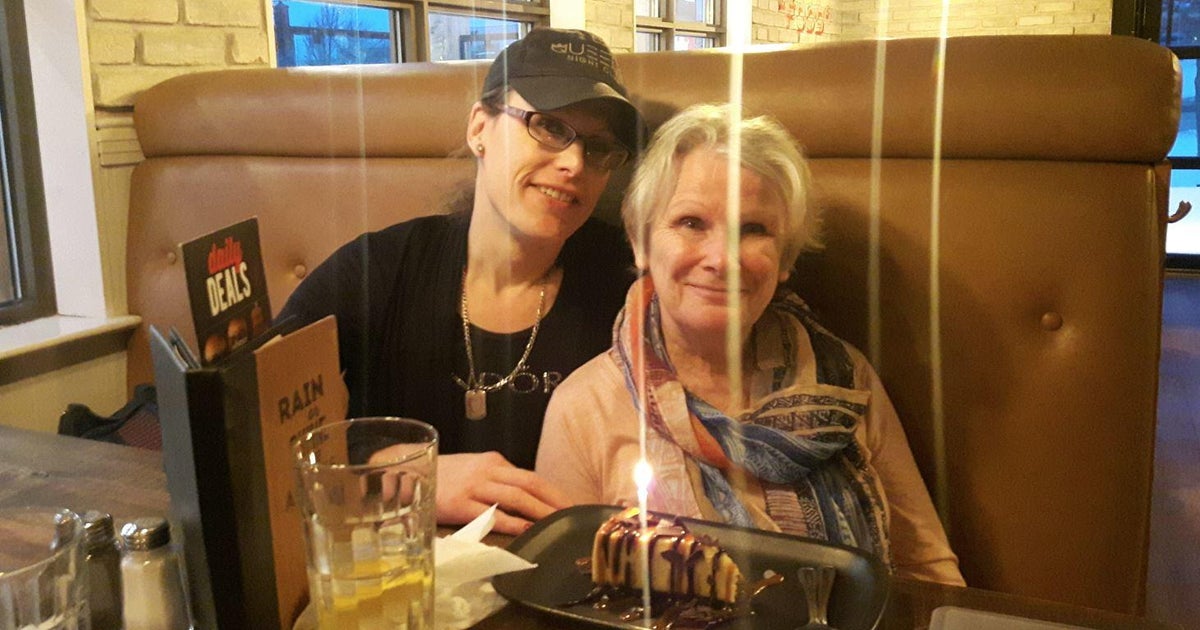CBS News
Arrests made after American woman dies in controversial “suicide capsule” in Switzerland

Police in northern Switzerland said Tuesday that several people have been detained and a criminal case opened in connection with the suspected death of a person in a “suicide capsule.”
The “Sarco” capsule, which has never been used before, is presumably designed to allow a person sitting in a reclining seat inside to push a button that injects nitrogen gas into the sealed chamber. The person is then supposed to fall asleep and die by suffocation in a few minutes.
Exit International, an assisted suicide group based in the Netherlands, said it is behind the 3D-printed device that cost over $1 million to develop.
Swiss law allows assisted suicide so long as the person takes his or her life with no “external assistance” and those who help the person die do not do so for “any self-serving motive,” according to a government website.
ARND WIEGMANN/AFP via Getty Images
A law firm informed prosecutors in Schaffhausen canton that an “assisted suicide” involving the Sarco had taken place Monday near a forest cabin in Merishausen, regional police said in a statement, adding that “several people” were taken into custody and prosecutors opened an investigation on suspicion of incitement and accessory to suicide.
Dutch newspaper Volkskrant reported Tuesday that police had detained one of its photographers who wanted to take pictures of the use of the Sarco. It said Schaffhausen police had indicated the photographer was being held at a police station but declined to give a further explanation.
The newspaper declined to comment further when contacted by the Associated Press.
Schaffhausen’s public prosecutor Peter Sticher told Swiss newspaper Blick that several people were arrested “so that they were not colluding with each other or covering up evidence.”
Sticher said the operators knew the risks of being arrested.
“We warned them in writing. We said that if they came to Schaffhausen and used Sarco, they would face criminal consequences,” he said.
In an email, the Dutch Foreign Ministry told the AP that it was in contact with the newspaper and Swiss officials.
“As always, we cannot interfere in the legal process of another country. At the same time, the Netherlands stands firmly for press freedom. It is very important that journalists worldwide can do their work freely,” it said.
Exit International, the group behind the Sarco, said in a statement a 64-year-old woman from the U.S. Midwest – it did not specify further – who had suffered from “severe immune compromise” had died Monday afternoon near the German border using the Sarco device.
It said Florian Willet, co-president of The Last Resort, a Swiss affiliate of Exit International, was the only person present and described her death as “peaceful, fast and dignified.”
Dr. Philip Nitschke, an Australian-born trained doctor behind Exit International, has previously told the AP that his organization received advice from lawyers in Switzerland that the use of the Sarco would be legal in the country.
In the Exit International statement on Tuesday, Nitschke said he was “pleased that the Sarco had performed exactly as it had been designed … to provide an elective, non-drug, peaceful death at the time of the person’s choosing.”
The claims of Nitschke and Exit International could not be independently verified.
On Monday, Health Minister Elisabeth Baume-Schneider was asked in Swiss parliament about the legal conditions for the use of the Sarco capsule, and suggested its use would not be legal.
“On one hand, it does not fulfill the demands of the product safety law, and as such, must not be brought into circulation,” she said. “On the other hand, the corresponding use of nitrogen is not compatible with the article on purpose in the chemicals law.”
In July, Blick reported that Sticher, the state prosecutor in Schaffhausen, wrote to Exit International’s lawyers saying any operator of the suicide capsule could face criminal proceedings if it was used there – and any conviction could bring up to five years in prison.
Prosecutors in other Swiss regions have also indicated that the use of the suicide capsule could lead to prosecution.
Over the summer, a 54-year-old U.S. woman with multiple health ailments had planned to be the first person to use the device, but those plans were abandoned.
Switzerland is among the only countries in the world where foreigners can travel to legally end their lives and has a number of organizations that are dedicated to helping people kill themselves. But unlike others, including the Netherlands, Switzerland does not allow euthanasia, which involves healthcare practitioners killing patients with a lethal injection at their request and in specific circumstances.
About 1,300 people died by assisted suicide in Switzerland in 2020, the BBC reported.
Some lawmakers in Switzerland have argued that the law is unclear and have sought to close what they call legal loopholes.
In 2021, Daniel Huerlimann, a legal expert and assistant professor at the University of St Gallen, was asked by Sarco to explore whether the use of the suicide pod would break any Swiss laws.
He told the BBC that his findings suggested the pod “did not constitute a medical device,” so would not be covered by the Swiss Therapeutic Products Act.
He also believed it would not fall foul of laws governing the use of nitrogen, weapons or product safety, the BBC reported.
“This means that the pod is not covered by Swiss law,” he said.
—-
If you or someone you know is in emotional distress or a suicidal crisis, you can reach the 988 Suicide & Crisis Lifeline by calling or texting 988. You can also chat with the 988 Suicide & Crisis Lifeline here.
For more information about mental health care resources and support, The National Alliance on Mental Illness (NAMI) HelpLine can be reached Monday through Friday, 10 a.m.–10 p.m. ET, at 1-800-950-NAMI (6264) or email info@nami.org.
The Swiss government refers queries about suicide prevention to a group called “Dargebotene Hand,” or The Offered Hand.
CBS News
Capturing Moriah Wilson’s Killer – CBS News

Watch CBS News
Be the first to know
Get browser notifications for breaking news, live events, and exclusive reporting.
CBS News
How to watch the Minnesota Vikings vs. Chicago Bears NFL game today: Livestream options, more

Getty Images
The Minnesota Vikings will take on the Chicago Bears today. The Vikings are currently 8-2, an impressive run so far this season, and will be looking to add a fourth win to their current streak after last Sunday’s 23-13 win against the Tennessee Titans. The Bears, on the other hand, are entering this game on the heels of a four-game losing streak after a tough 20-19 loss against the Green Bay Packers last Sunday.
Here’s how and when you can watch the Vikings vs. Bears game today, whether or not you have cable.
How and when to watch the Minnesota Vikings vs. Chicago Bears
The Vikings vs. Bears game will be played on Sunday, November 24, 2024 at 1:00 p.m. ET (11:00 a.m. PT). The game will air on Fox and stream on Fubo and the platforms featured below.
How and when to watch the Minnesota Vikings vs. Chicago Bears game without cable
You can watch this week’s NFL game on Fox via several streaming services. All you need is an internet connection and one of the top options outlined below.
Fubo offers you an easy, user-friendly way to watch NFL games on CBS, Fox, NBC, ABC, ESPN, and NFL Network, plus NCAA football channels. The Pro tier includes 200+ channels and unlimited DVR, while the Elite with Sports Plus tier adds NFL RedZone and 4K resolution. New subscribers get a seven-day free trial and all plans allow streaming on up to 10 screens simultaneously.
You can watch today’s game with a subscription to Sling’s Orange + Blue tier, which includes ESPN, ABC, NBC, and Fox. The plan offers 46 channels with local NFL games, nationally broadcast games and 50 hours of DVR storage. For complete NFL coverage, add Paramount+ to get CBS games, or upgrade with the Sports Extra add-on for additional sports channels like Golf Channel, NBA TV and NFL RedZone.
Watching NFL games, including Fox broadcasts, is simple with Hulu + Live TV, which includes 90 channels, unlimited DVR storage, and access to NFL preseason games, live regular season games and studio shows. The service includes ESPN+ and Disney+ in the subscription.
Want to watch today’s game live on your smartphone? If so, NFL+ streaming service is the solution you’re looking for. It lets you watch NFL Network and out-of-market games on mobile devices, with an upgrade option to NFL+ Premium that includes NFL RedZone for watching up to eight games simultaneously. Note that NFL+ only works on phones and tablets, not TVs.
CBS News
How to watch the Detroit Lions vs. Indianapolis Colts NFL game today: Livestream options, more

Nic Antaya/Getty Images
The Detroit Lions will face off against the Indianapolis Colts today. The Lions enter this game as top contenders with a near-perfect record of 9-1 so far this season. The Colts, who are 5-6 this season, could have a tough game on their hands against the Lions but will be looking to rack up another win after prevailing over the New York Jets in a tight game last Sunday.
Here’s how and when you can watch the Colts vs. Lions game today, whether or not you have cable.
Here’s how and when to watch the Detroit Lions vs. Indianapolis Colts
The Lions vs. Colts game will be played on Sunday, November 24, 2024 at 1:00 p.m. ET (11:00 a.m. PT). The game will air on Fox and stream on Fubo and the platforms featured below.
How and when to watch the Detroit Lions vs. Indianapolis Colts game without cable
You can watch this week’s NFL game on Fox via several streaming services. All you need is an internet connection and one of the top options outlined below.
Experience NFL action like never before with Fubo’s comprehensive sports streaming platform. From Sunday showdowns to primetime matchups, catch every NFL game across major networks including CBS, Fox, NBC, ABC, ESPN and NFL Network. Choose the Pro package to unlock 200+ channels and limitless DVR storage, or elevate your game-day experience with the Elite with Sports Plus package, featuring NFL RedZone’s commercial-free scoring highlights and stunning 4K quality.
Test drive the service with a no-commitment seven-day free trial, and share the excitement with family and friends — Fubo supports simultaneous streaming on up to 10 devices, so everyone can watch their favorite teams.
You can watch today’s game with a subscription to Sling’s Orange + Blue tier, which includes ESPN, ABC, NBC, and Fox. The plan offers 46 channels with local NFL games, nationally broadcast games, and 50 hours of DVR storage. For complete NFL coverage, add Paramount+ to get CBS games, or upgrade with the Sports Extra add-on for additional sports channels like Golf Channel, NBA TV and NFL RedZone.
Watching NFL games, including Fox broadcasts, is simple with Hulu + Live TV, which includes 90 channels, unlimited DVR storage, and access to NFL preseason games, live regular season games and studio shows. The service includes ESPN+ and Disney+ in the subscription.
Want to watch today’s game live on your smartphone? If so, NFL+ streaming service is the solution you’re looking for. It lets you watch NFL Network and out-of-market games on mobile devices, with an upgrade option to NFL+ Premium that includes NFL RedZone for watching up to eight games simultaneously. Note that NFL+ only works on phones and tablets, not TVs.









